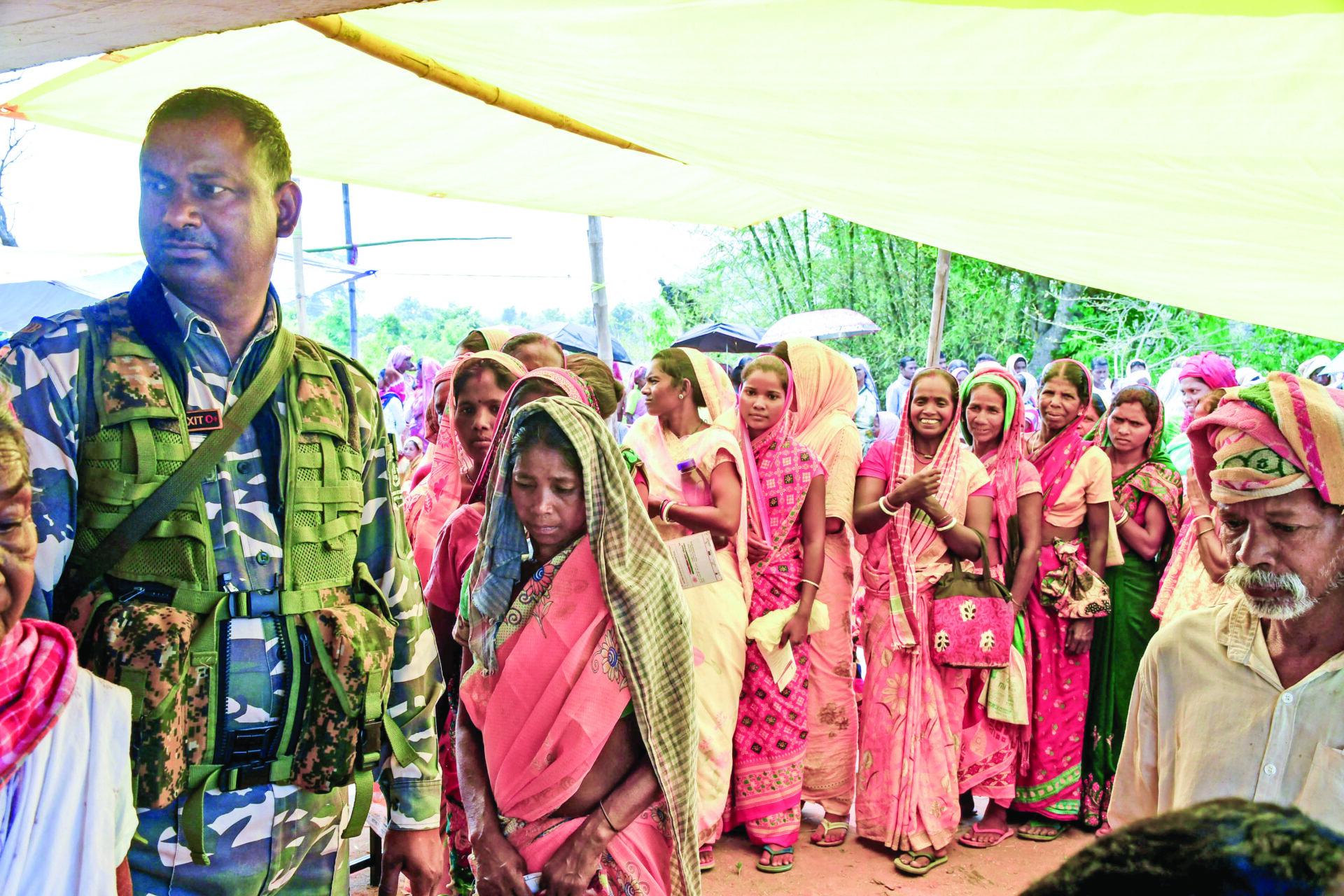BJP targets tribal and women voters, aiming to regain support and unseat the JMM-led government.
New Delhi: After a setback in the recently concluded Lok Sabha elections, where BJP failed to secure any of Jharkhand’s five ST seats, the upcoming Assembly election in the state has gained importance for the party. BJP is now focusing on securing tribal-dominated seats by showcasing prominent tribal leaders, aiming to replicate its 2014 performance when it won 11 out of 28 tribal seats. Additionally, the party is actively working to attract women voters, who are expected to play a crucial role in the election outcome.
BJP is making a strong push to win over tribal voters in Jharkhand, to unseat the JMM-led I.N.D.I.A bloc in the upcoming Assembly elections, set for two phases on November 13 and 20, 2024. The results will be declared on November 23, coinciding with those in Maharashtra. Determined to remove the Hemant Soren-led government, BJP sees victory in Jharkhand as an opportunity to regain momentum, following its recent Lok Sabha setbacks. The party is prioritising tribal communities, aiming to secure their support by addressing tribal concerns, promoting tribal leaders, and implementing favourable policies.
With tribal voters making up 26.21% of Jharkhand’s population, BJP is focusing on the 28 ST-reserved seats out of the state’s 81 Assembly seats. These seats have historically been challenging for the party, prompting it to bring former Jharkhand Chief Minister Champai Soren into the fold. With his backing, BJP feels more prepared than in the recent Lok Sabha elections, where it failed to win any of the five ST seats. In the 2019 Assembly elections, BJP managed to secure only two of the 28 tribal seats, while JMM and Congress together claimed 25 (19 for JMM, six for Congress). The remaining seat, initially won by Babulal Marandi’s JVM, is now also with BJP, following t JVM’s merger into the party.
With Champai Soren in BJP, the party is setting its sights on the Kolhan region, which comprises 14 Assembly seats. To make inroads into this region, BJP is focused on challenging the strong tribal support base of JMM. In addition to Champai Soren, BJP has gained the backing of Sita Soren, daughter-in-law of Shibu Soren, and Geeta Koda, wife of former CM Madhu Koda, aiming to strengthen its tribal appeal. The party has also fielded key figures like state BJP President Babulal Marandi and Meera Munda, wife of former Chief Minister Arjun Munda, to bolster its tribal vote share. With this lineup, BJP hopes to improve its performance in tribal areas, setting a target to secure 10–12 of the 28 reserved tribal seats while remaining confident of success in urban, non-tribal areas.
A source within the BJP said that during the parliamentary polls, the party led in 52 out of the 81 Assembly seats. However, in this Assembly election, the party plans to centre its campaign on the achievements under Prime Minister Narendra Modi’s leadership, focusing on initiatives that uplift tribal communities. The source emphasised that BJP has rolled out numerous nationwide programs supporting tribal communities in education, healthcare, economic development, and cultural preservation. This time, the party intends to engage directly with voters to highlight its contributions and counter the anti-tribal actions of the JMM-led opposition
In addition to focusing on tribal voters, BJP is also making a strong push to win over women voters in Jharkhand, especially as around 56% of first-time voters aged 18 to 19 are women. Recognising this demographic’s potential impact, BJP and NDA alliance are crafting campaign strategies specifically targeting women. This marks a significant shift in Jharkhand’s political landscape, as it is perhaps the first Assembly election in which women are at the centre of campaign efforts. The importance of women voters is underscored by the fact that in 32 out of the 81 Assembly seats, women outnumber male voters. This trend is even more pronounced in the 28 seats reserved for Scheduled Tribes (STs), where female voters exceed male voters. Given this, both, BJP and JMM are competing intensely to present the most attractive offers to women voters. To address this key demographic, BJP has included the ‘Gogo Didi’ scheme in its manifesto. Under this program, the party has promised to provide a monthly allowance of Rs 2,100 to women in Jharkhand, aiming to improve their economic independence and welfare. Through initiatives like this, BJP hopes to connect with women voters across the state, positioning itself as the party with the most to offer them in terms of support and empowerment. This focus on women could prove to be a decisive factor in the upcoming election.
A political analyst closely following Jharkhand politics said that BJP leaders are intensifying their rhetoric on issues like “Bangladeshi infiltrators” and demographic changes in the Santhal Pargana region, accusing the current government of marginalising the tribal population.

